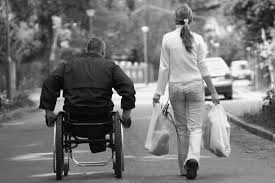歡迎您加入 英文/知識/交友 文章請點選欄位
週四(10/1)1.新聞對健康不好!2.不要幫助人?
晚上9:30
No comments
台北最有質感 實力之英文聚會 協助您增進英文口語流暢的能力
最重要的是 完全免費的哦! 跟一群好朋友們 談心 聊時事 是快樂地 歡迎您加入
加入方法: 直接到聚會地點 無任何限制 聚會地點地址在網站上 100%歡迎您
新埔捷運站1號出口 旁邊7-11巷子進入20公尺 看到夏朵美髮
左轉 聚會時間7:00pm--9:30pm
新聞對健康不好!
News is bad for you – and giving up reading it will make you happier
News is bad for your health. It leads to fear and aggression, and hinders your creativity and ability to think deeply. The solution? Stop consuming it altogether.
News misleads. Take the following event (borrowed from Nassim Taleb). A car drives over a bridge, and the bridge collapses. What does the news media focus on? The car. The person in the car. Where he came from. Where he planned to go. How he experienced the crash (if he survived). But that is all irrelevant. What's relevant? The structural stability of the bridge. That's the underlying risk that has been lurking, and could lurk in other bridges. But the car is flashy, it's dramatic, it's a person (non-abstract), and it's news that's cheap to produce. News leads us to walk around with the completely wrong risk map in our heads. So terrorism is over-rated. Chronic stress is under-rated. The collapse of Lehman Brothers is overrated. Fiscal irresponsibility is under-rated. Astronauts are over-rated. Nurses are under-rated.
News is toxic to your body. It constantly triggers the limbic system. Panicky stories spur the release of cascades of glucocorticoid (cortisol). This deregulates your immune system and inhibits the release of growth hormones. In other words, your body finds itself in a state of chronic stress. High glucocorticoid levels cause impaired digestion, lack of growth (cell, hair, bone), nervousness and susceptibility to infections. The other potential side-effects include fear, aggression, tunnel-vision and desensitisation.
News increases cognitive errors. News feeds the mother of all cognitive errors: confirmation bias. In the words of Warren Buffett: "What the human being is best at doing is interpreting all new information so that their prior conclusions remain intact." News exacerbates this flaw. We become prone to overconfidence, take stupid risks and misjudge opportunities. It also exacerbates another cognitive error: the story bias. Our brains crave stories that "make sense" – even if they don't correspond to reality. Any journalist who writes, "The market moved because of X" or "the company went bankrupt because of Y" is an idiot. I am fed up with this cheap way of "explaining" the world.
News wastes time. If you read the newspaper for 15 minutes each morning, then check the news for 15 minutes during lunch and 15 minutes before you go to bed, then add five minutes here and there when you're at work, then count distraction and refocusing time, you will lose at least half a day every week. Information is no longer a scarce commodity. But attention is. You are not that irresponsible with your money, reputation or health. Why give away your mind?
News makes us passive. News stories are overwhelmingly about things you cannot influence. The daily repetition of news about things we can't act upon makes us passive. It grinds us down until we adopt a worldview that is pessimistic, desensitised, sarcastic and fatalistic. The scientific term is "learned helplessness". It's a bit of a stretch, but I would not be surprised if news consumption, at least partially contributes to the widespread disease of depression.
Q:
Do you think giving up reading News will make you happier?
Do you think News misleads us?
Why News is bad for our health? Do you agree that news hinders your creativity and ability to think deeply?
What kind of news are you interested in?
How do you tell when the news is biased?
Do you think News wastes time and makes us passive?
What Makes a Story Newsworthy?

不要幫助人?
Don't Dare Help the Elderly
At Bloomberg, Adam Minter explains why many Chinese have come to believe that, in the words of one Weibo poster, “helping a fallen senior is a risky investment and its overall rate of return is usually negative“:
On the morning of Sept. 4, in the riverside boomtown of Wuhan, Mr. Li, an 88-year-old man, fell in the street and injured his nose. People passed him by, but no one raised a hand to help as he lay on the ground, suffocating on his own blood.
This week, China’s netizens have expressed an outpouring of sympathy – for the bystanders. This is nothing new here. In recent years, there have been several high-profile cases of elderly men and women who have collapsed or suffered accidents in public spaces who then sue the good Samaritans who have tried to help them. These cases have created a genuine and widespread fear that helping a person in need will lead to personal financial loss.
In the wake of the Wuhan incident, People’s Daily, the official newspaper of the ruling Communist Party, ran an online poll that asked if people would help a collapsed elderly person on the street. More than 80 percent of respondents said that they, too, wouldn’t help for fear of extortion. A poll on Sina Weibo, China’s leading microblog, showed a similar result: 43 percent said they wouldn’t help, 38 percent said they weren’t sure what they would do, and only 20 percent said they would “definitely” help.
The Chinese have long prided themselves on their traditional, Confucian reverence for the elderly. And these incidents have generated an exceptional outpouring of public concern over the decline of social ethics and morality in Chinese society
Q:
From this article “43 percent said they wouldn’t help, 38 percent said they weren’t sure what they would do, and only 20 percent said they would “definitely” help.” So, what are your opinions?
Do you Dare Help the Elderly?
Would you risk your own life to help a stranger in danger?
What to do when someone doesn't want help?
Are you afraid getting trouble when help others?
Why there is no trust between people?
Why Is Asking for Help So Difficult?
訂閱:
張貼留言 (Atom)


















0 意見:
張貼留言